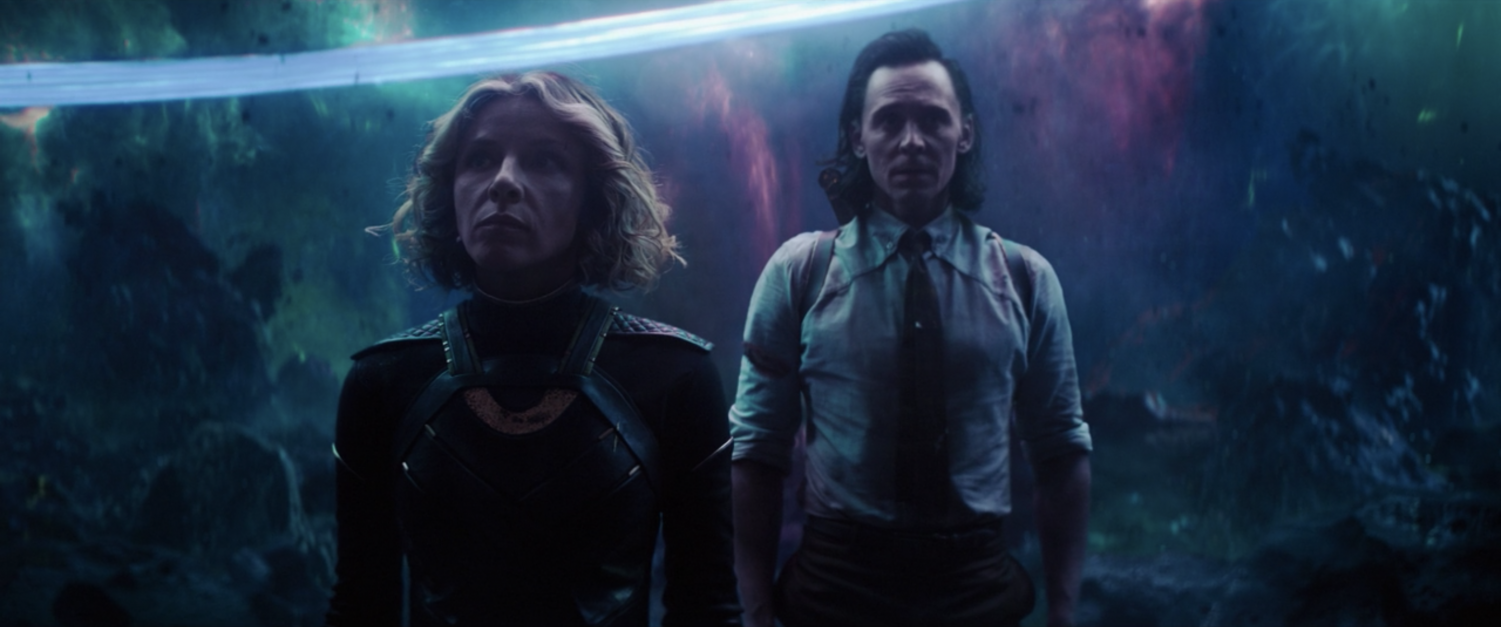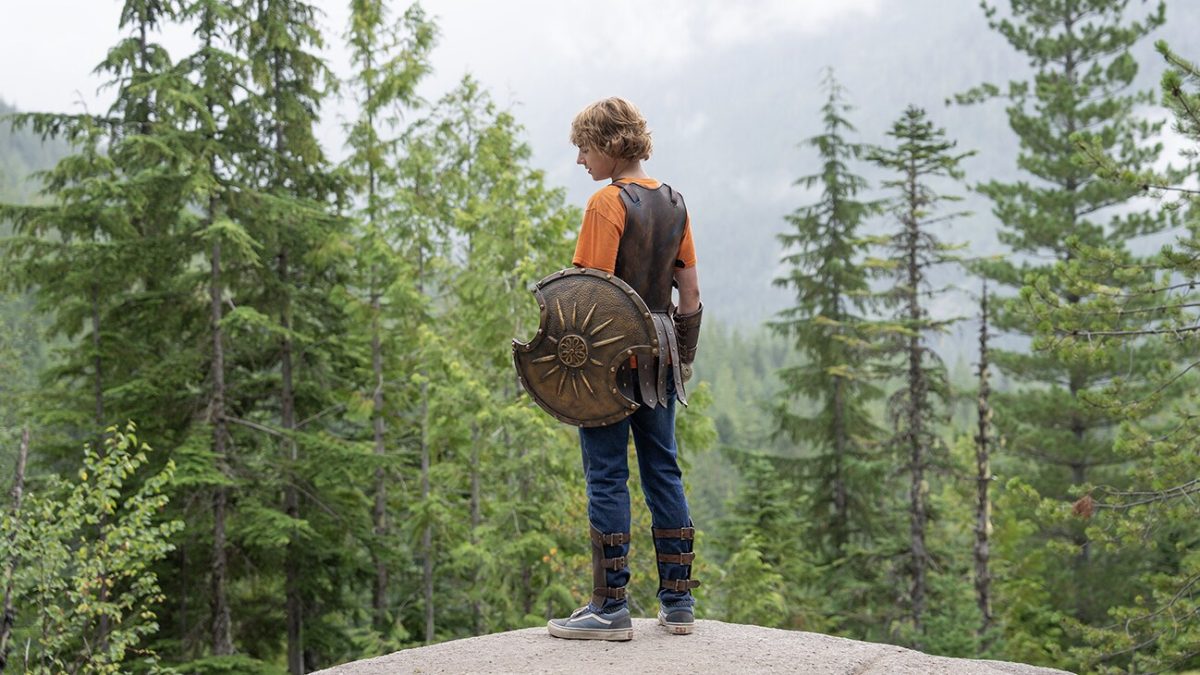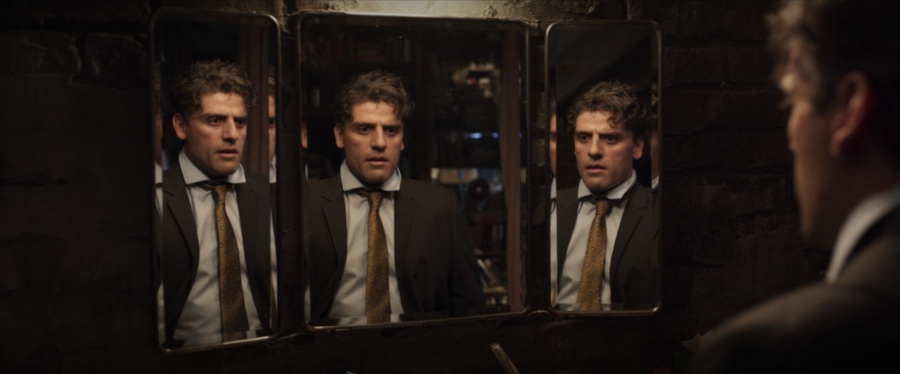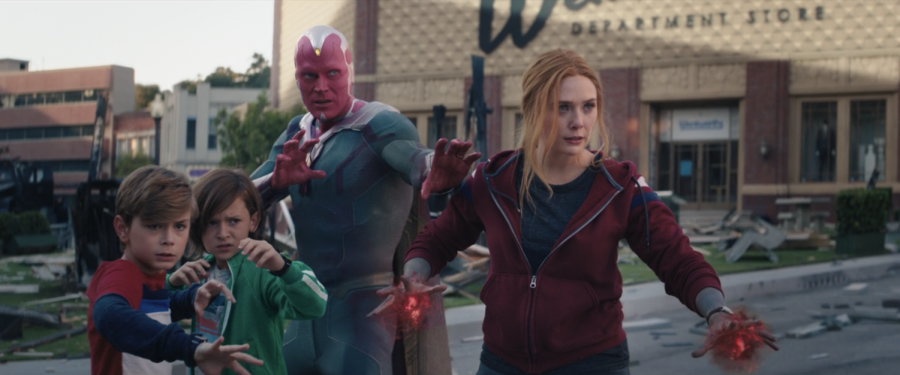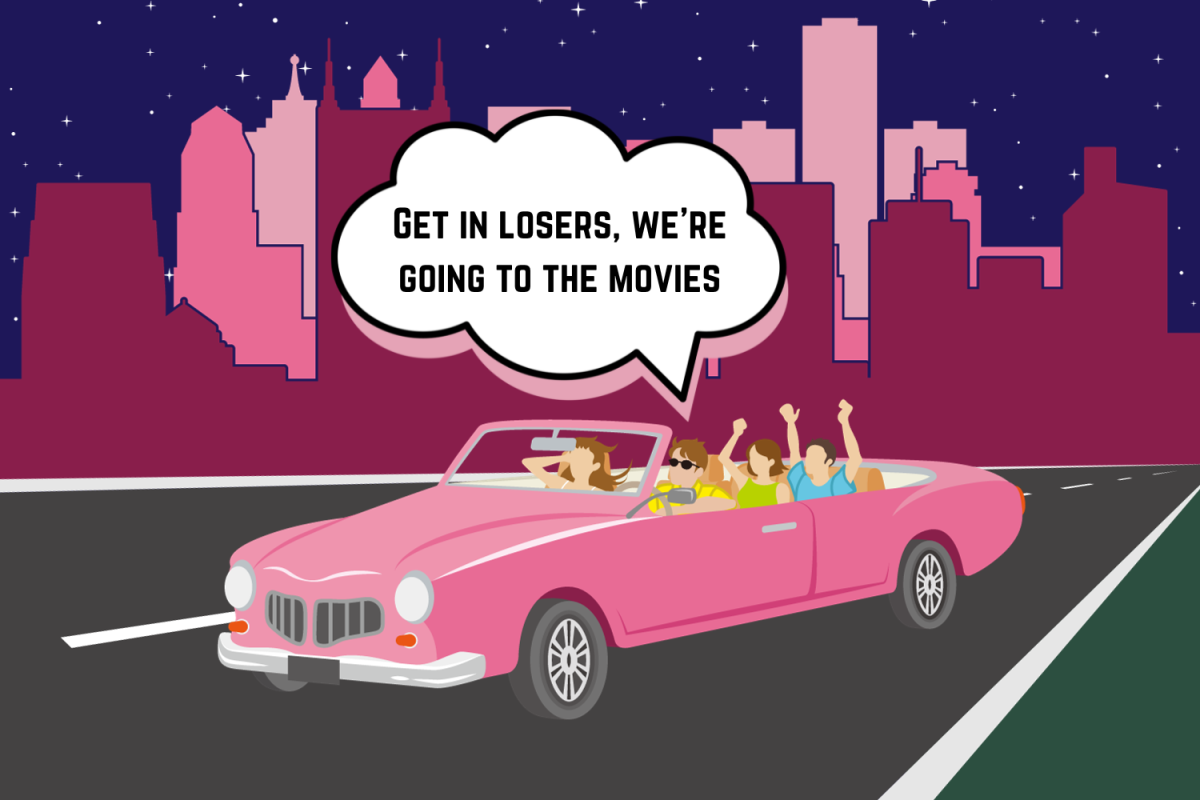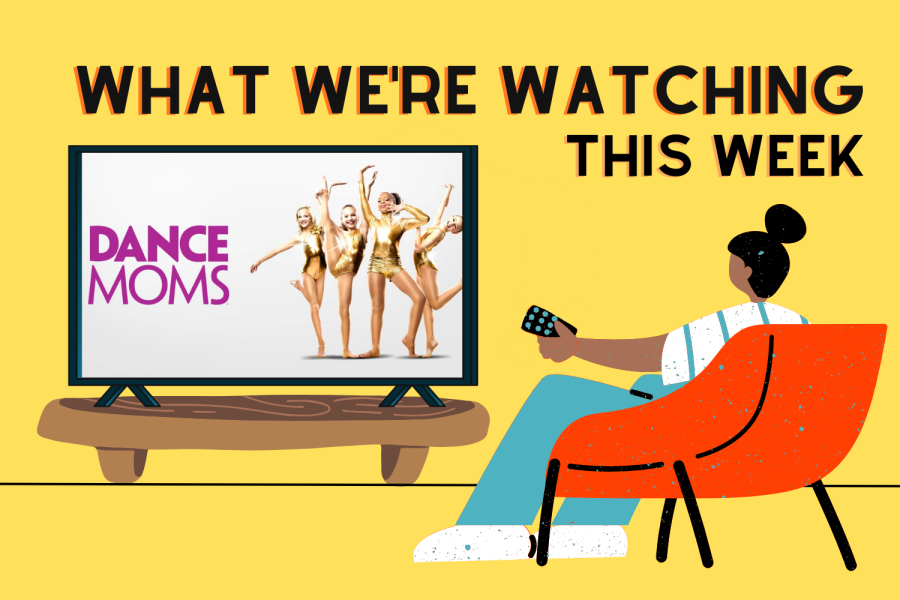MCU content on Disney+ has a problem. And no, I don’t mean Scarlett Johansson suing Disney over an alleged contract breach when “Black Widow” was released straight-to-streaming. I also don’t mean the countless delayed films that threaten to run the hype train off its decade-long track. I don’t even mean Disney’s scary market monopoly. Okay, maybe MCU content on Disney+ has a few problems.
But the problem I’m hung up on is the plot structure of the three shows released so far: “WandaVision,” “The Falcon and the Winter Soldier” and now “Loki.” Each show starts off innocently enough with the characters we’ve come to know and love, transplanted into a new, post-“Endgame” environment where a hidden threat looms.
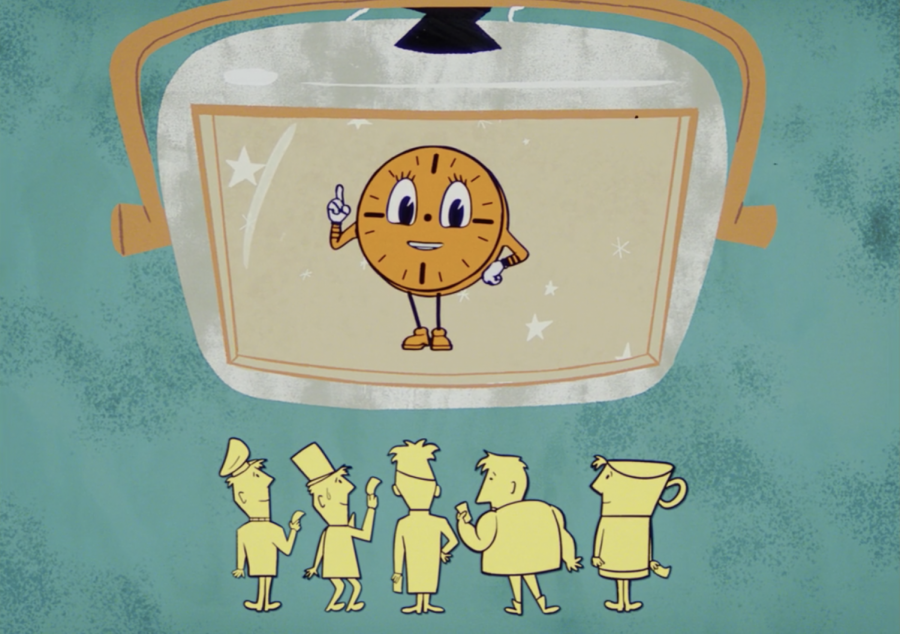
In Westview, we knew someone else was toying with Wanda’s magic, but we weren’t sure it was Agnes/Agatha until the showdown of the last few episodes. “Falcon” gave us the Power Broker, whose importance beyond Karli’s childish mission we immediately recognized, but whose exact identity remained unclear until the finale. And the Time Variance Authority’s all-powerful Time Keepers being fake was painfully obvious, even before we knew they were animatronics from the “It’s a Small World” ride in Orlando—but again, we didn’t know who created them and why. In all three instances, it’s easy to spot the lie and suspect that a twist villain lurks in the shadows, but it’s not as easy to see through that lie to the truth behind.
Yep, I’m about to say it: all three shows are structurally the same. That’s a bold stance to take when the plot in question is kinda just how television suspense works—in almost every show, ever. It’s even tougher to justify the comparison when I loved “WandaVision,” hated “Falcon” and thought “Loki” was good, but not perfect. How could they be the same, yet so different?
It comes down to how each show modifies that same basic format, doing different things with character work or content design to produce varying effects. I could go on forever about how lame and uncooked every single character in “Falcon” is (except Rhodey in his 30 seconds of screen time—we love you, Don Cheadle), or I could write an MLA-formatted essay about “WandaVision” as an unprecedented masterpiece of aesthetic Americana with artificial intelligence and humanity themes thrown in for good measure. But “Loki” first drew my attention to the MCU’s repeat disease, so let’s examine the problems borne from it.
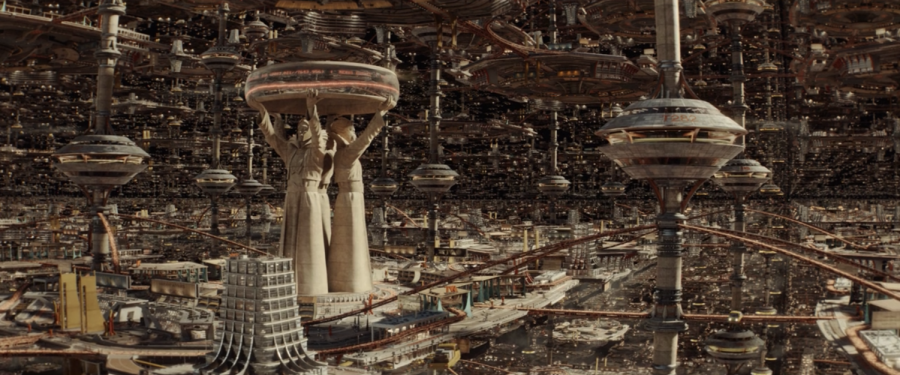
Most of them can be attributed to the show’s irritating obsession with expositional dialogue. When Miss Minutes’ cutesy 60s infomercial first plays for Loki in episode one, we learn a ton of new things about Phase 4 multiverse exploration—and then we never stop learning. The characters rarely take a moment to sit and just exist in the steampunk-and-Star-Trek world of the TVA, and we don’t get to appreciate the Roadside-Picnic feel of it all. There’s always something new that has to be explained to Loki, and us, in excruciating detail. Because of these informational monologues, mystery doesn’t arise naturally; it’s forced down our throats, then solved minutes later with no real challenge.
This makes each episode feel like a race to its own ending, giving us absolutely no room to breathe until a HARD stop in the final episode. By then, though, we’re accustomed to flitting through locations at hummingbird speeds, and the finale being one long, slow conversation in a literal office bores us to death within minutes.
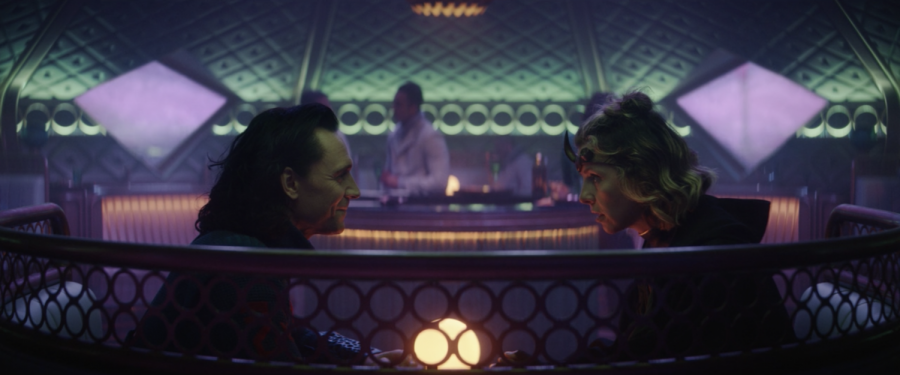
Expositional obsession also causes “Loki” to trip over itself and fall into some cyberpunk space travel clichés, primarily on the planet Lamentis in episode three. The neat color scheme and cataclysmic vibe of the environment almost distract from the predictability of the ark’s destruction, and the train ride scene offers probably the only break in the action to let us catch our breath. Despite these little victories, however, the lame green screen made the entire arc on Lamentis feel like a next-gen Progressive commercial. Maybe Flo is a Loki variant?
Sylvie is the writers’ apology for these mistakes, and I gratefully accepted it when Sophia Di Martino first graced my screen with her presence at the end of episode two. With Loki finally undergoing character development (thank god), she became everything we loved to hate about him—the backstabbing, the trust issues, the “glorious purpose” and the equally glorious hair.
Because I loved her so much at first, it made me sad to realize in episode six that she was starting to piss me off. But I wasn’t surprised. She is a Loki, after all, and she possesses his flaws right alongside all the bits that made him a fan favorite in the “Thor” franchise—a Venn diagram that may very well be a circle. But Sylvie’s stagnation as a manipulative, distrustful asshole is actually a good thing, as it transforms her into a foil and directs our focus toward the show’s crowning achievement—Loki’s real growth.
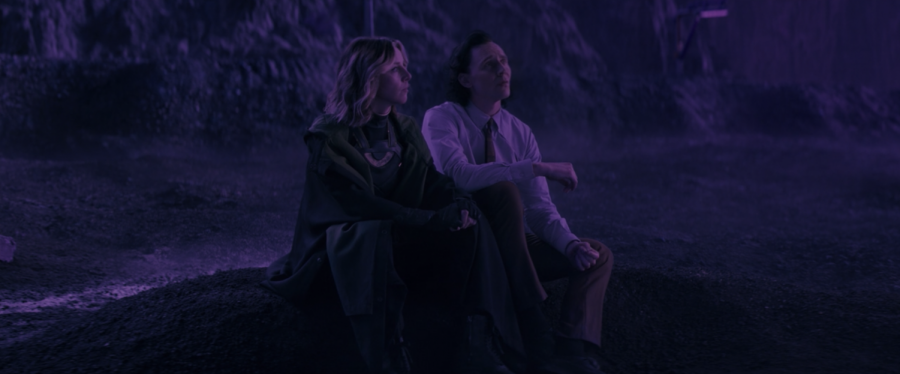
Taken together, Loki and Sylvie are a literal representation of the good ending and bad ending happening simultaneously. Tom Hiddleston’s Loki is a Loki redeemed (at long, long last), while Sylvie is a Loki who remains so trapped in the cycle of distrust that she can’t even learn from another Loki who has already changed.
Before Loki Battle Royale in the Void, one Loki says that Lokis are only good for backstabbing each other. For the longest time, that was true of the lil rascal that was Hiddleston’s Loki, who saw the world with tunnel vision and profound entitlement, focused on his own self-serving ends. Our Loki has now passed that torch to Sylvie, and everyone else has to deal with the multiversal consequences of her refusal to change. “Everyone else,” in this instance, being characters like Owen Wilson’s Mobius, the best character in the show.
Where Sylvie’s snark gets old fast, Wilson continuously channels the playful deception necessary to star opposite Hiddleston and Di Martino, with every line delivered so nonchalantly that you feel like Mobius is your best friend the second he enters any scene. He’s also got the best one-liners—think “cockroach instinct” and “incredible seismic narcissist.” I’m sure Wilson had a blast in this role, playing Loki’s first true friend. Like if u cri evrytiem.
Likewise, Gugu Mbatha-Raw is incredible in the role of Judge Ravonna Renslayer, another surprise villain who pulled a White Vision at the end of the series and disappeared to who knows where. She especially shines in her many impassioned back-and-forth dialogues with Wilson’s Mobius, and you can feel her power and her betrayal just as intensely as his friendship. I’m excited for her eventual return(s).
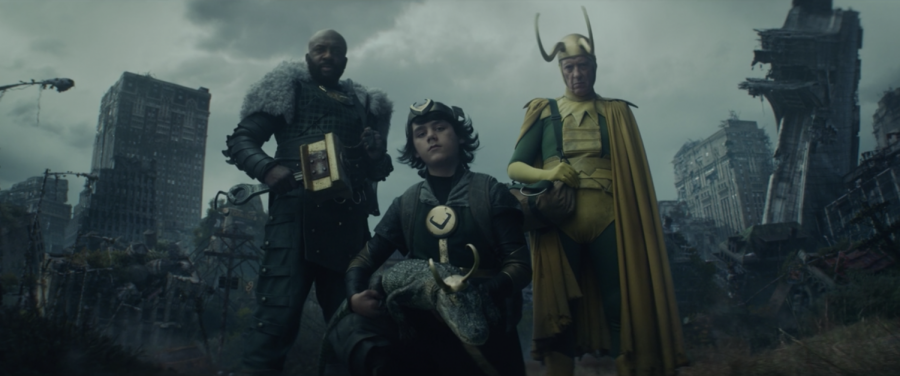
Notably, my excitement about any of these characters comes from one key component that “Loki” knocks out of the park: its musical direction. Composer Natalie Holt makes use of a stylized, rough-edged strings section and deep, unsettling brass ensemble for Loki’s new character theme, and the whole number finds its basis in firm, swaying rhythms to mimic both the sacred passage of time and the various threats to it.
Themes that play in the TVA (and an interlude in Loki’s theme) take a different approach, with warbling sci-fi synths, echoey reverb-enhanced piano and—a pleasant surprise—a theremin, all of which breed suspense and a sense of curiosity-killed-the-cat-esque inquisition. The expositional obsession I disparaged bleeds through a bit here, but this is its one manifestation that I’m not complaining about. Holt has accomplished an apocalyptic feat like no other.
It seems I’ve painted quite the ambivalent picture here, and you’re probably wondering: well, did he actually like “Loki” or not? The answer is yes, but with a catch. “Loki” excels at character work and sound design and its cast hits every mark. Structurally, however, it’s nothing new, and if Disney wants people to keep paying an exorbitant monthly subscription fee for new MCU content, they might have to eventually do better than giving us a show about everyone’s least favorite Avenger.
At least we can be excited for “What If…?” in the meantime. That’ll be something new, unlike Sylvie’s trust issues. Girl, you can be better. We know you can.
All episodes of “Loki” are now streaming on Disney+.


